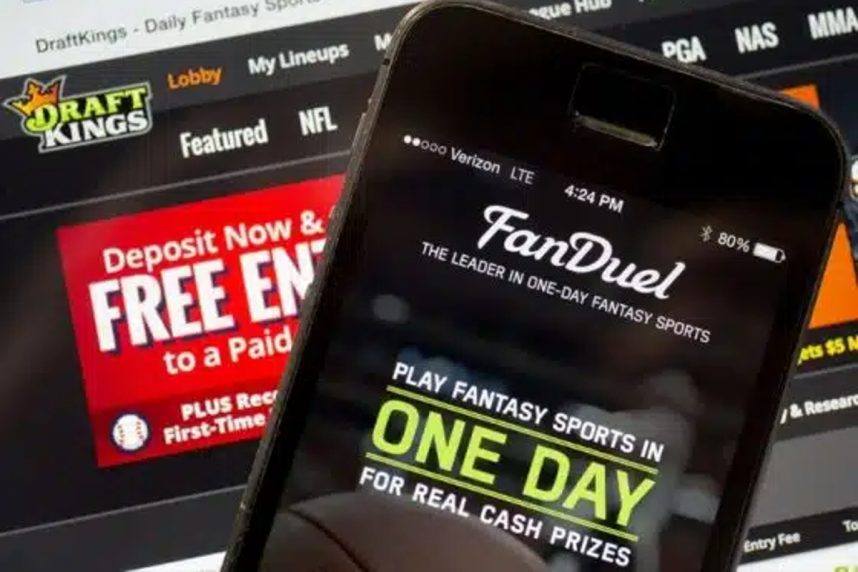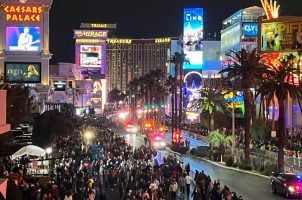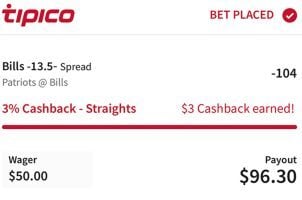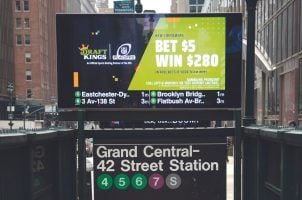Gaming Lobby Defends Sports Betting Ads, Says Marketing Critical to Ridding Illegal Ops
Posted on: July 29, 2024, 09:44h.
Last updated on: July 29, 2024, 09:59h.
The American Gaming Association (AGA), the preeminent trade group representing the interests of the commercial and tribal gaming industries in Washington, DC, and in state capitals across the nation, is defending how regulated sportsbooks advertise.

With calls in Congress and in certain state capitals to limit or restrict how sports betting operators advertise, the AGA says such marketing is critical to ridding illegal gambling and offshore betting enterprises.
Advertising by legal sportsbooks plays an important role in informing consumers about legitimate betting operators and in migrating those consumers to safe betting options,” the AGA wrote in a recent statement.
“The widespread legalization of sports betting brought with it advertising for legal, regulated sportsbooks that compete for consumer attention with illegal offshore books. These illegal operators use deceptive online marketing tactics to bombard bettors with misleading claims about their legal status,” the trade group continued.
The AGA says its mission is to “foster a policy and business environment where legal, regulated gaming thrives.” Its core membership includes commercial and tribal gaming operators, gaming suppliers and manufacturers, and independent testing labs.
Advertising Increases Awareness
The AGA says its research has determined that around 70% of sports bettors who are using an offshore, unregulated website are unaware that the business is operating illegally. By advertising legal operations, the AGA believes more consumers will switch to a book that is regulated, pays taxes, and provides consumer safeguards.
While the frequency of sports betting ads has been criticized by responsible gaming experts, lawmakers, religious leaders, and people opposed to gambling, the AGA reports that sports betting advertising volume has decreased in recent years.
The AGA reports that sportsbook and daily fantasy sports advertising spending declined by $210 million last year, or 15%. The gaming group says sports betting adverts peaked in 2021, three years after the US Supreme Court struck down the federal law that had limited single-game sports wagering to Nevada.
According to Nielsen Ad Intel, sports betting ads accounted for just 0.4% of the total advertisements ran on television last year. That’s less than alcohol (0.5%), telecom/wireless (1.5%), fast food (3.8%), and pharmaceuticals (14.1%).
Sports betting is legal and operational in 38 states, plus DC. Missouri voters will decide in November whether they’ll become the 39th state to approve regulated sports gambling.
Only Alabama, Alaska, California, Georgia, Hawaii, Idaho, Minnesota, Oklahoma, South Carolina, Texas, and Utah continue to outlaw gambling on sports.
Federal Bill Stalls
In March, US Rep. Paul Tonko (D-New York) introduced the SAFE Bet Act (Supporting Affordability and Fairness With Every Bet Act). The statute sought to ban sports betting ads from running during live sporting events and prohibit sportsbooks from including messaging that might induce someone to gamble such as free wagers and odds boosts incentives.
Just as in the tobacco industry when it was determined that that industry was posing a public health situation, we have now displaced Joe Camel with celebrity spokespeople and, yes, free product,” Tonko declared.
Tonko’s SAFE Bet Act hasn’t gained any traction in Congress.
Related News Articles
Commercial Gaming Revenue Tops $60B as 2022 Sets Another Annual Win Record
Tipico Sportsbook ‘Fair Play Pledge’ Hopes to Change Sports Betting
Most Popular
Why UFC Vows Never to Return to Vegas Sphere
VEGAS MYTHS RE-BUSTED: The Strip’s Naked City Was Named for Sunbathing Showgirls
Star Gold Coast Can Recoup $38.7M Debt from Billionaire Ex-Betting Exec
Wynn Las Vegas Strikes $130M DOJ Settlement, Largest Fine Ever for a US Casino
Most Commented
-
VEGAS MYTHS RE-BUSTED: Elvis Was a Straight-Up Racist
— August 9, 2024 — 11 Comments -
ANTI-SOCIAL BEHAVIOR: Vegas Casino Buffet Stunt in Poor Taste Goes Viral
— August 16, 2024 — 7 Comments -
VEGAS MYTHS RE-BUSTED: The Strip Tried Appealing to Families and Failed
— August 23, 2024 — 7 Comments
















No comments yet